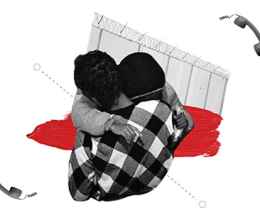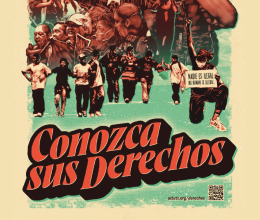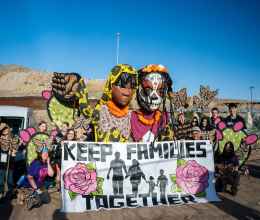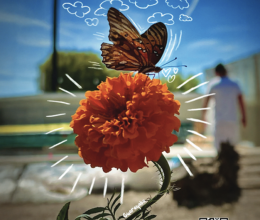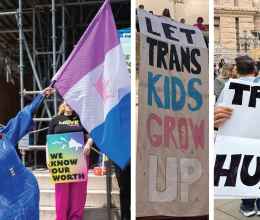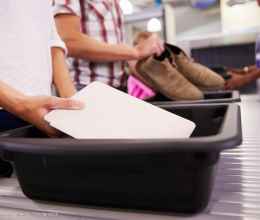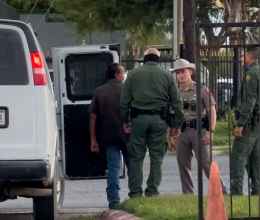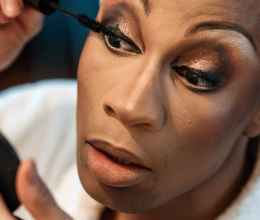
A beginner drag queen discovers that in South Texas, queer history and family history can be one and the same
Here we are in the dressing room at PBD’s Lounge, in McAllen. PBD’s is 33 years old, the oldest LGBT bar in the Rio Grande Valley. For my performance tonight I’m going to wear this gold dress and my black wig.
I’m very new at this: I only started doing drag less a year ago.
Drag on this part of the border is still about old-school pageant show girls, trying to look really pretty and imitating a star — which is great and has its place. I sometimes get criticized for not looking conventionally feminine enough. But I like to do things a little differently.
Some queens will do numbers in only one language or the other. I do both, like for the song Mickey — I do the English by Tony Basil, and the Spanish by Timbiriche. A few months ago I did a tribute to gender-variant artists: Dead or Alive, Juan Gabriel, David Bowie, George Michael. And Prince — my stage name is Raspberry Beret, after the title of one of his songs. The day of Trump’s inauguration, I did a more politically charged number that was a tribute to the 80s queer activist group ACT UP.
I had a real hard time accepting that I was gay. I was harassed and bullied at school when I was younger.
My mom spoke English with a heavy accent. She was from the town of Camargo, in Mexico just across the border from Rio Grande City, where my dad grew up. As a child I would go over and visit, and I was ten years old when we went to a family reunion in Mexico.
Everybody there said, “You’re just like Chaco.”
It turns out he was my uncle on my mom’s side, but I had never heard of him. We were getting in the car to go home and I said to my mom, “Who was Chaco?”
My dad laughed and my mom said, “Don’t tell him.”
But my dad said, “Chaco was a homosexual.”
I already knew what that meant.
I asked, “What happened to Chaco?” They said that when I was three or four years old, he’d been murdered. He was stabbed multiple times in his apartment, and no one knew why.
One thing about being gay on the border is that so many people leave. “Why would you want to be gay or trans here,” the thinking goes, “when you could go to Austin?”
I’ve been away. I went to college in Vermont. I’ve lived in Phoenix. Yet I feel like I’m meant to be here. I work for TRLA — Texas Rio Grande Legal Aid — with immigration, special education, and LGBTQ issues, with people across the Valley. With Trump in now, it seems especially important to be here.
But even before that, there was a pull for me. Some of my family have been in the Valley for at least 300 years. I can even trace some as far back as the 1750s. That was 20 years before the American Revolution! I sometimes feel there’s something spiritual in that.
Not long ago I started doing an oral history project, interviewing local LGBTQ elders. People like Betty Crocker, who’s been a drag queen longer than anyone else in the region. Doing this history, I kept running into people like her, who knew my uncle Chaco. I found out he’d owned one of the first gay bars in McAllen, “Bumpers.” And he’d been really involved in the community.
It’s a lot of fun to talk about all this to people my age. Learning that I’m part of an entire history of queer life in the Rio Grande Valley, just waiting to be discovered, has given me great joy.
And something else I found out while doing the history: My uncle had another gay bar, in Mexico, just south of McAllen, in Reynosa.
Chaco called that one “Choices.”
